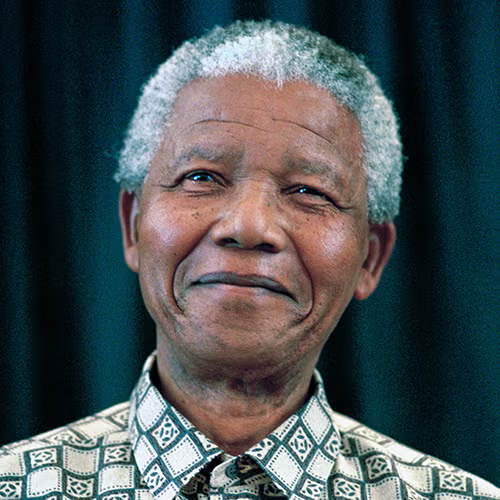The need for electoral reform in Nigeria is a matter of national importance, requiring collective actions from all stakeholders.
The Nigeria electoral system has long been a subject of controversy and criticism. The rigging of elections, voter intimidation and violence have contributed to the erosion of democracy.
There is no denying that Nigeria is a country rich in culture, resources and potential. However, one area where it falls short is its electoral system.
For decades, the country has been plagued with flaws and irregularities in its elections. This has led to lack of trust in the government and a hinderance to progress.
Despite the country’s transition to democracy in 1999, there have been continuous concerns about the fairness and transparency of the electoral processes.
It is crucial to understand that the electoral process is the backbone of any democratic society. It is a fundamental right of every citizen to have a say in who governs them and how the country is run.
However, in Nigeria, electoral fraud has become a norm. Allegations of vote rigging, voter suppression, ballot box stuffing, and violence being rampant in almost every election.
First and foremost, the issue of electoral corruption must be tackled head-on. The scourge of vote-buying, rigging, and manipulation of results has become too familiar. This has undermined the very foundations of our democracy.
To combat this, the Independence Electoral Commission (INEC) must be granted greater autonomy and resources to effectively monitor and regulate the electoral process.
Moreover, the electoral laws need to be revised to prevent political parties from exploiting loopholes and undermining the democratic process.
For instance, the law should be amended to prevent parties from fielding unqualified candidates, thereby ensuring that only credible individuals are elected into office.
Furthermore, voter education and awareness are crucial in promoting electoral reform. Many Nigerians are unaware of their rights and responsibilities as voters, leading to low turnout and disengagement from the political process.
Civic education should be integrated into school curricula and public awareness campaigns to empower citizens to make informed decisions.
Additionally, the adoption of technology can greatly enhance the electoral process. Electronic voting system and biometric accreditation can reduce the incidence of fraud and ensure the accuracy of results.
However, this requires significant investment in infrastructure and training for electoral officials.
Another critical aspect of electoral reforms is the promotion of internal party democracy. Political parties should be compelled to conduct transparent and inclusive primaries. This will allow members to choose their candidates out of their own free will.
https://blog.nigerianbar.org.ng/2024/08/28/reforming-nigerias-electoral-system/
Moreover, the electoral process should be made more inclusive to accommodate marginalized groups. Groups such as women, youth, and people with disabilities.
This includes providing accessible polling stations, voter education materials in braille. This will help electoral officials be more sensitive to the needs of these groups.
Another significant issue with the current electoral system is the violence and intimidation that often occurs during election. It is not uncommon for armed individuals to disrupt polling stations, leading to chaos and fear among voters.
This not only prevent people from exercising their right to vote but also puts their safety at risk. The use of violence and intimidation to influence election outcomes is a violation of human rights. This has no place in a democratic society.
Electoral reform should into measures to prevent such acts and ensure a safe and peaceful voting process for all citizens.
Also, the need for electoral reform is urgent due to the lack of proper representation in the Nigerian government. The winner- take -all system currently in place means that smaller political parties and independent candidates have little chance of being elected.
This leads to a lack of diversity in the government and a limited representation of the people’s voices. By adopting a party-list system, all political parties and candidates will have an equal opportunity to be elected.
Furthermore, the lack of an Independent and impartial electoral commission has been a major issue in Nigeria.
The appointment of the Independent National Electoral Commission (INEC) chairman by the president, undermines the commission’s independence. This can lead to bias in the electoral process.
Also, several countries have successfully implanted electoral reforms that Nigeria can draw inspiration form. For instance, Ghana has enhanced its electoral integrity through the use of biometric voter registration.
Similarly, South Africa’s open and transparent electoral process have increased public confidence and participation. These success stories illustrate that with the right measures, it is possible to create an electoral framework that is fair, transparent and trustworthy.
Learning from these international examples can help Nigeria avoid pitfalls of past reforms and cultivate a system that uphold democratic values.
It is time for the government to take decisive actions and prioritize electoral reform to strengthen our democracy and move Nigeria towards progress.
In conclusion, the need for electoral reform in Nigeria cannot be overstated. It is time for the government to take a proactive approach towards addressing the issues in our electoral system.
Adopting a more modern and inclusive system will not only boost citizens’ trust in the government. It will also pave the way for a more prosperous and united Nigeria.
As citizens, it is our responsibility to demand change and hold our leaders accountable. Let us work together towards a better Nigeria.
Let us seize this opportunity to strengthen our democracy and ensure that the voices of all Nigerians are heard. The Future of a great Nigeria depends on it.





















































































